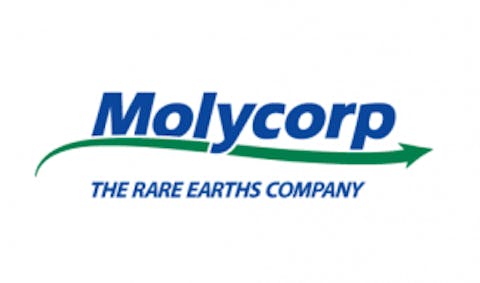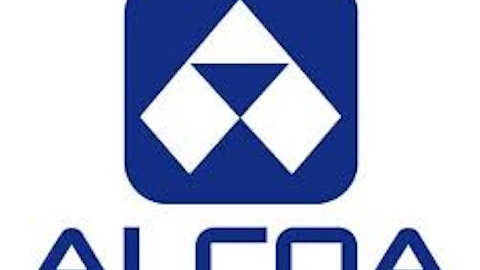The leading American player in the rare earths mining sector, Molycorp Inc (NYSE:MCP) has revealed an intention to sell $200 million in stock and $100 million in convertible senior notes (due in 2018) to fund its latest capital expenditure, which includes development work at its Mountain Pass, California rare-earths mining facility. The news caused an 8.7% dip in the company’s shares in premarket trading; piling on a company whose shares had already fallen more than 60% in 2012.

Molycorp has a $1.42 billion plan to ramp up the Mountain Pass complex, a figure that is more than its current market cap of $1.10 billion. The cost of the project has exceeded Molycorp’s expectation, hence the stock offering. An additional $40 million of the common stock will be given to Morgan Stanley (NYSE:MS) in exchange for the lending fee, while Morgan Stanley will be the book runner for the sale. The business now expects the facility to produce an output of 19,050 tons by mid-2013. Moreover, the initial plan to produce 40,000 tons of rare-earth minerals by the end of 2013 has been deferred due to the weak pricing.
Ultimately, rare earths are a bit of a misnomer. They are not rare like the space metals (Rhenium, Iridium, Osmium) but rather are evenly and finely dispersed throughout the earth’s crust, making few deposits of them economically viable. The discovery of a major deposit off the coast of one of Japan’s islands – a projected 220 year supply at current usage rates – hasn’t helped a market that has seen its price bubble burst in the past year.
According to its last quarterly statement, Molycorp has about $436 million in cash reserves. With prices of REE’s falling back to near 2010 levels, Molycorp will only find investors if it can produce at these prices. Earlier this month, it warned its shareholders that the cost blowout at Mountain Pass, coupled with the falling prices of rare-earths, would result in lower than expected revenues in the first half of the current year and a cash shortfall of $250 million. The note and stock offering is going to cover this.
Besides its production woes, Molycorp also had a sudden change of leadership when its board ousted the company’s long standing President and CEO Mark Smith and replaced him with Constantine Karayannopoulos as interim president and CEO. Smith has been spearheading the Mountain Pass rare earths operations for more than a decade. Karayannopoulos used to head Neo Material, which was acquired by Molycorp in March last year for $1.3 billion. Smith’s departure has come because of an SEC investigation into the accuracy of the Molycorp’s public disclosures. Nonetheless, the whole affair does raise question marks over its management. The SEC investigations have been in process since August, but the board decided to sweep the issue under the carpet until the official earnings release three months later in November.
All of this has put further dent on Molycorp’s shares, which, at the beginning of January, were trading at a 19% discount to their book value. This has prompted some analysts, such as Byron Capital Markets Ltd, to speculate that Molycorp could be under the takeover radar of firms such as Nissan or Siemens AG (NYSE:SI).
Although the purchase of Molycorp by an automobile manufacturer seems like an extreme case of vertical integration, this is exactly what Toyota did recently by making a 25% investment in a lithium development project in Salar de Olaroz, Argentina.
The key for Mountain Pass is that it produces a number of the so-called heavy rare earths, including dysprosium, which is in high demand for the motors used in electric vehicles. Heavy rare earths, dysprosium especially, are projected to be in a supply deficit for the next decade, but current prices look to be under heavy pressure still as new mine supply worldwide stimulated by the price bubble is now mixing with uneven near-term demand .
According to Metal Miner, Dysprosium prices are off more than 15% in January and their Rare Earth Index seems to be bottom bouncing. I would watch Molycorp’s news feed for confirmation that it is able to drum up investor support for expanding Mountain Pass as a sign the market approves the deal. The rare earth industry looks like it isn’t ready to absorb more potential supply at the moment, and patience would be prudent before jumping in again.
The article Molycorp’s Expansion at the Mercy of a Wary Market originally appeared on Fool.com and is written by Peter Pham.
Copyright © 1995 – 2013 The Motley Fool, LLC. All rights reserved. The Motley Fool has a disclosure policy.





